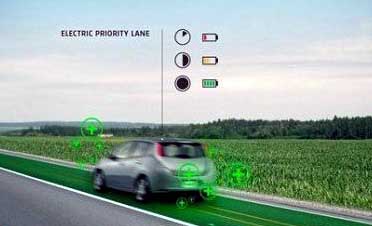The role of temperature sensors in hybrid/electric vehicles
At present, “energy saving and emission reduction” is one of the main directions of global industrial development. This aspect refers to the need to continue to develop "energy-saving emission reduction" technology for internal combustion engine engines, and on the other hand, the need to strengthen the development of new energy vehicles. Among them, hybrid/pure electric vehicles are the main direction. Undoubtedly, internal combustion engine vehicles will occupy a relatively large proportion of applications for a long time. This requires further optimization of the internal combustion engine technology to reduce fuel consumption by about 30%. At the same time, another conversion trend worthy of attention is in the development of electric vehicles. The biggest challenge now is that the battery still has major problems such as too big, too expensive, too heavy, and insufficient travel. In addition, the high temperature of the battery and the driver in the hybrid/pure electric vehicle may also pose a danger at any time, which is an important issue to be solved on a global scale.
The sensors used in hybrid/electric vehicles mainly include sensors for detecting battery temperature, temperature sensors for monitoring motors, and temperature sensors for battery cooling systems. Hybrid/electric vehicle batteries provide optimum energy output only at precisely defined operating temperatures. Therefore, it is required to reliably monitor and adjust the battery temperature to prevent the battery from overheating and maximize its working life. Most hybrid/electric vehicle battery designs currently use NTC temperature sensors to measure their temperature. The special screw-type M703 series temperature sensor for battery modules of the TDK Group's EPCOS is optimized for various environmental requirements such as humidity, dew and mechanical pressure. And verified to meet the requirements of mass production of automobiles.
Electric motors are another essential component of hybrid/electric vehicles. In order to ensure the long life of the motor and to achieve its optimum performance, the temperature of the electric motor also needs to be continuously monitored to operate as accurately as possible in the temperature above 140 °C. It is therefore also critical to determine the temperature of the stator windings, which is the only way to make full use of the full advantage of the motor from the risk of overheating. In order to measure the temperature of the stator, it is also required that the sensor should be easy to install, and that the sensor is protected from mechanical stress during installation and operation and has a high dielectric strength. The latter prevents arcing between the driver current circuit and the measuring current circuit. To this end, the new EPCOS temperature sensor E1541 series for motors has the high dielectric strength required for direct insertion into the stator coil former. By using a cast NTC sensor element, the sensor is resistant to high temperatures up to 200 ° C and achieves extremely short response times, is extremely rugged under mechanical pressure, and is easy to install.

The sensors used in hybrid/electric vehicles mainly include sensors for detecting battery temperature, temperature sensors for monitoring motors, and temperature sensors for battery cooling systems. Hybrid/electric vehicle batteries provide optimum energy output only at precisely defined operating temperatures. Therefore, it is required to reliably monitor and adjust the battery temperature to prevent the battery from overheating and maximize its working life. Most hybrid/electric vehicle battery designs currently use NTC temperature sensors to measure their temperature. The special screw-type M703 series temperature sensor for battery modules of the TDK Group's EPCOS is optimized for various environmental requirements such as humidity, dew and mechanical pressure. And verified to meet the requirements of mass production of automobiles.
Electric motors are another essential component of hybrid/electric vehicles. In order to ensure the long life of the motor and to achieve its optimum performance, the temperature of the electric motor also needs to be continuously monitored to operate as accurately as possible in the temperature above 140 °C. It is therefore also critical to determine the temperature of the stator windings, which is the only way to make full use of the full advantage of the motor from the risk of overheating. In order to measure the temperature of the stator, it is also required that the sensor should be easy to install, and that the sensor is protected from mechanical stress during installation and operation and has a high dielectric strength. The latter prevents arcing between the driver current circuit and the measuring current circuit. To this end, the new EPCOS temperature sensor E1541 series for motors has the high dielectric strength required for direct insertion into the stator coil former. By using a cast NTC sensor element, the sensor is resistant to high temperatures up to 200 ° C and achieves extremely short response times, is extremely rugged under mechanical pressure, and is easy to install.






